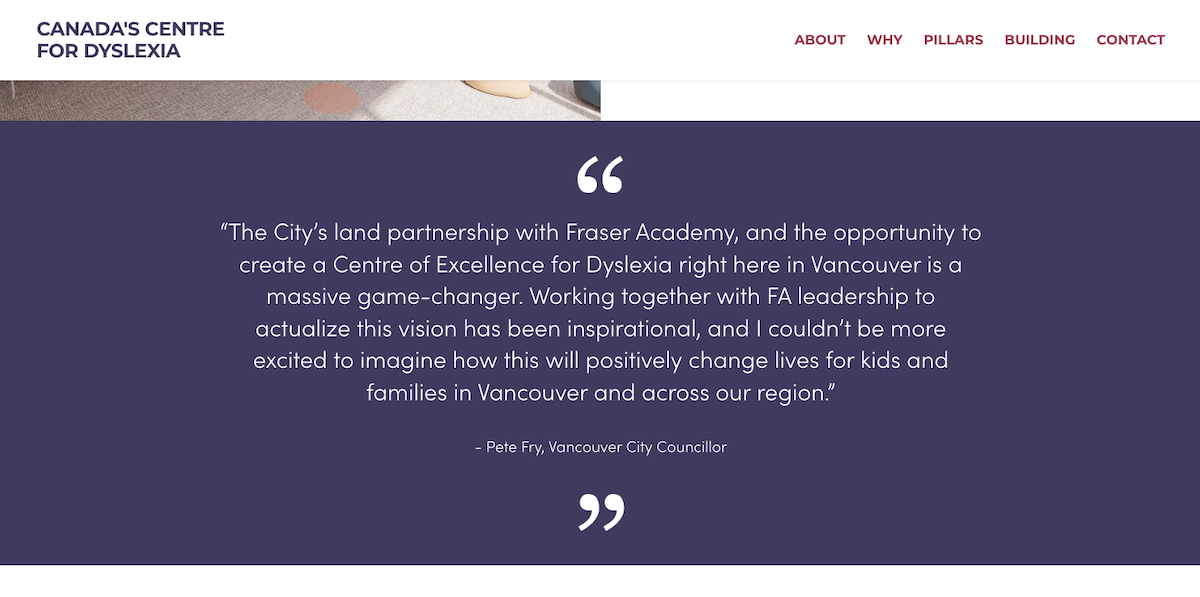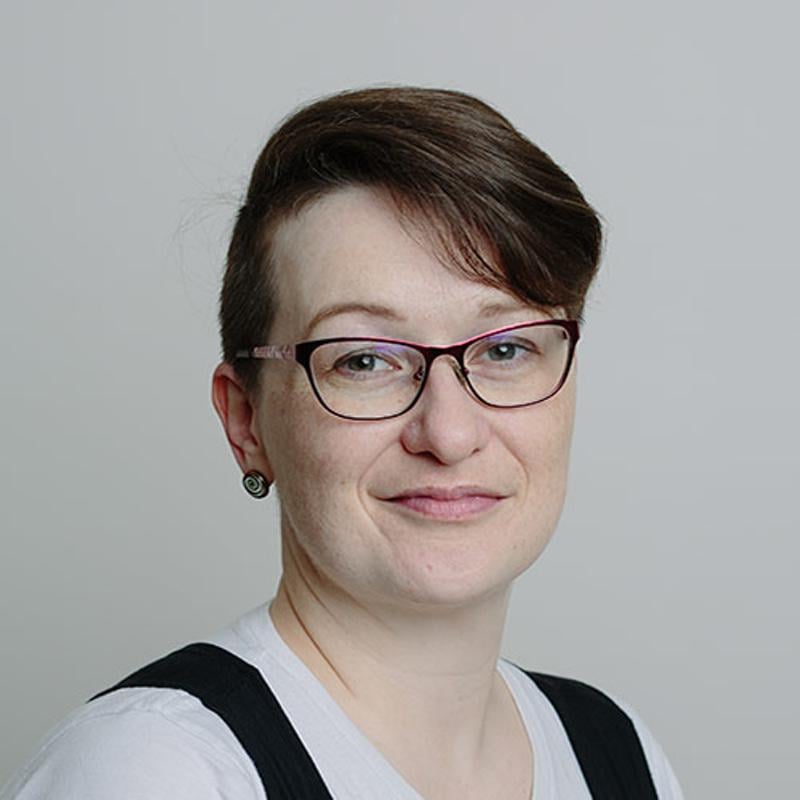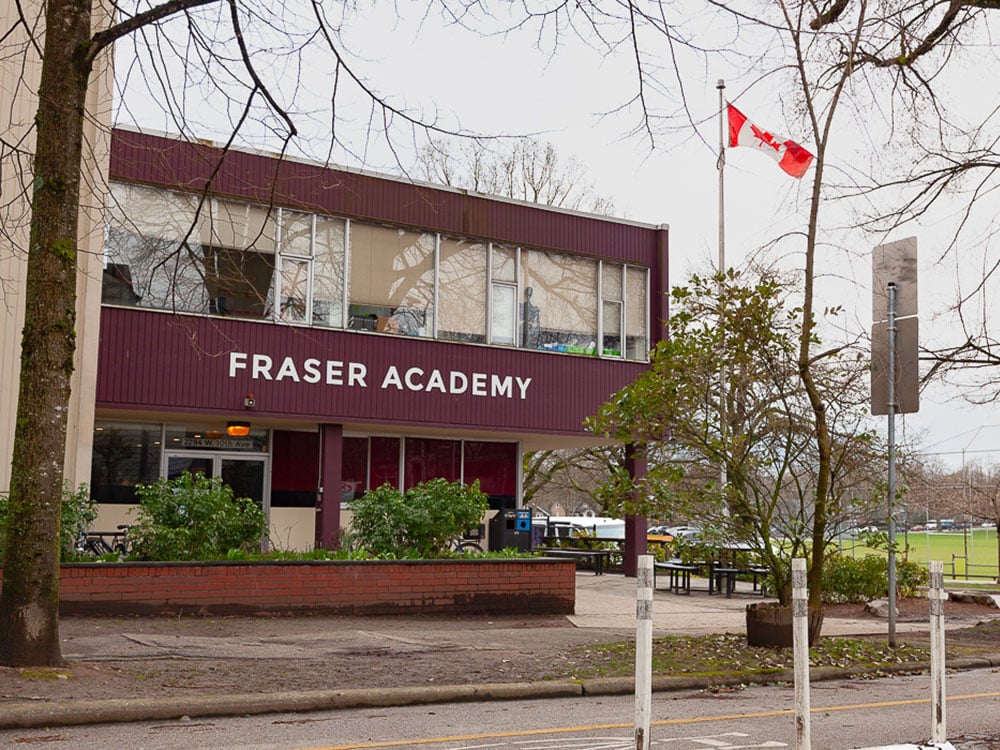Despite its being the most common of learning disabilities, there is no specialized public school funding from the province for students diagnosed with dyslexia.
The City of Vancouver, however, has been putting its support — and its dollars — behind a proposed Centre for Dyslexia, a rebuild and expansion of Fraser Academy, a private kindergarten to Grade 12 school for students with dyslexia and other learning disabilities in Vancouver.
According to the non-profit that operates Fraser Academy, the Centre for Dyslexia will be Canada’s first education facility dedicated to supporting people with dyslexia, the learning disability that causes difficulties with reading comprehension and speaking and affects up to 20 per cent of the population.
In 2020, the Fraser Academy Association reported needing approximately $3.5 million in repairs and recapitalization costs over six years for its existing K-12 school building.
The new centre, which will be located on the same site, will house the school, continue offering after-school supports for students from other schools, expand the teacher training they currently provide for educators in the public and private system, and provide early childhood dyslexia assessments and interventions.
The centre will serve children and adults, with some resources coming free of charge; though in a statement sent to The Tyee, the Fraser Academy Association did not say which resources would be provided at no cost.
In the 2023-24 school year, Fraser Academy’s annual student tuition ranged from $38,000 to $44,000 per student. Tuition bursaries are available, and a spokesperson for the Fraser Academy Association told The Tyee parents can recoup up to 70 per cent of tuition costs by claiming it as a medical expense on their taxes, as well as accessing bursaries and other grants.
Unique support from the city
In 2021, Vancouver city council passed a motion extending Fraser Academy’s lease at 2294 W. 10th Ave. until 2030. Charging the school $1 per year in rent, it was effectively a $4.35-million grant to the school from the city.
In 2023, city council voted to extend that lease for an additional maximum of 99 years, which translates into another $27.5-million grant from the city.
The Fraser Academy is the only independent school in the city that receives that kind of subsidy from the municipal government, a city spokesperson confirmed for The Tyee.
A previously filed freedom of information request reveals that in January 2023, Mayor Ken Sim sent a letter to Premier David Eby asking him to fund some of the estimated $123 million in capital costs for building the new Centre for Dyslexia.
B.C. subsidizes operational costs for most private schools in the province, including Fraser Academy. But it does not fund their capital costs.
Coun. Pete Fry has spoken out publicly in favour of the centre. A quote from him endorsing the centre is prominently displayed on the centre’s website.

Fry stood by the quote but told The Tyee he was unaware it was being used on the site.
Fry said he supports the centre because “they were going to establish less of an independent school and more a centre of excellence for language-based learning differences,” as well as teacher training and early screening and interventions for children.
“Not just a focus on their own students, but a larger public-benefit structure,” Fry added.
Fry voted in favour of extending the lease agreement in 2021. But he excused himself from the 2023 vote because his wife works for Aston Ostry Architects Inc., the architectural firm designing the new Centre for Dyslexia.
“I consistently hear that there’s not enough public support, and that there’s kids falling through the cracks,” Fry told The Tyee, adding he did not know if the city was putting funds into any public school dyslexia supports.
The city is already waiting on overdue education promises from the province, he said. “The reality is, we feel like we’re not getting the delivery of new schools like Olympic Village, on city-owned land, in a timely manner.”
Cathy McMillan, co-founder of the grassroots, parent-run organization Dyslexia BC, says it is troubling that the city is funding a private school to do what the public school system is failing to do: assess and support kids with dyslexia.
“The public system is hugely underserving the dyslexic community,” she said, adding Dyslexia BC has also heard from parents who feel their children with dyslexia were not adequately supported at Fraser Academy, either.
“I’m not sure how much homework [the city] has done in terms of talking to other dyslexia experts. I think they’ve just been hearing from the private school itself about how great they are,” McMillan said.
Dyslexia BC meeting with councillors cancelled
The Tyee requested an interview with Mayor Ken Sim, but he was not made available.
In an emailed statement shared with The Tyee by a city spokesperson, Sim stood by his decision to ask the province to fund some of the centre’s capital costs, noting that Fraser Academy supports and advocates for students with dyslexia from across B.C.
“While education lies beyond the jurisdiction of the city, we recognize the lack of funding for dyslexia support in public schools. Initiatives like the Centre for Dyslexia bridge this gap, providing support and resources to local families and teachers in the public education system,” Sim’s statement read.
“Vancouver aims to lead in support systems for dyslexic individuals and alleviate barriers to their well-being.”
McMillan had scheduled a meeting with the Vancouver councillors on Feb. 13 to present Dyslexia BC’s 2023 report on the educational experience of students with dyslexia in B.C. But the meeting was cancelled in early February due to a conflict, and McMillan, who asked for the meeting back in November 2023, was told to request another meeting.
“I would like them to hear how much trouble parents are having to get services in B.C. schools,” she told The Tyee. “I also had a couple of parents that were going to come with me who had bad experiences or didn’t get let in [to Fraser Academy].”
The Tyee requested an interview with Fraser Academy Association CEO Neil Johnston, who initially agreed to an interview but then cancelled the day of the interview, citing an unstated conflict.
Johnston was not available to reschedule the interview before The Tyee’s publication deadline. But a spokesperson provided written responses to questions sent by The Tyee, including about why government subsidies were necessary.
“It’s important to be engaging both levels of government to bridge existing gaps,” reads the response.
“The Centre for Dyslexia (a non-profit) will be an accessible community resource. As an education and training centre, it will share world-leading expertise to deliver programs for children, youth, their families, adults and professionals through both in-person and virtual platforms. Free services and resources will be part of the programs offered.”
No additional public school funding for dyslexic students
Like other students with diagnosed disabilities in B.C., students with dyslexia receive an individual education plan designed collaboratively by teachers, administrators, support staff, parents and, depending on their age, the students themselves. Each plan sets learning goals for the student and steps to take to achieve them.
But unlike for students with autism, for example, there is no additional provincial funding for in-school supports for students with dyslexia or any other learning disability in B.C.
In 2012, the Supreme Court of Canada ruled the North Vancouver School District had discriminated against a student with dyslexia after it closed a diagnostic centre in the district before he could enrol.
The family was forced to enrol their child in a private school, the cost of tuition for which they successfully recouped from the province via the lawsuit.
While school psychologists can provide assessment for learning disabilities at no cost to families, lengthy wait-lists mean many families end up paying thousands of dollars out of pocket for a private psychologist to assess their child.
That’s what two-thirds of respondents told a 2022 Dyslexia BC survey they did for their child. A quarter were assessed by the school psychologist, while another 10 per cent said their kids had yet to be assessed.
In press releases, on the centre’s website and in its email response to The Tyee, the Fraser Academy Association cites statistics about dyslexia such as: 80 per cent of kids with dyslexia are undiagnosed; 80 per cent of youth experiencing homelessness have a learning disability; and people with dyslexia are up to three times more likely to experience mental health issues.
Sim’s letter to Premier David Eby cited similar statistics.
Gary Pooni, a prominent real estate developer, is listed on the centre’s website as a member of its building committee. So is David Sacks, president and CEO of Imasco Minerals Inc.
The names Gary Pooni and David Sacks show up on a list of donations to the ABC Vancouver municipal party prior to the October 2022 election.
The Tyee requested comment from Pooni and Sacks about their involvement with Fraser Academy and political donations to ABC but did not hear back by press time.
Province does not fund private school capital costs
The Tyee requested an interview with B.C. Minister of Education and Child Care Rachna Singh about support for students with dyslexia and for the Centre for Dyslexia. We also requested comment from Premier Eby on the letter from Mayor Sim and whether the province ever funds private school capital costs.
Singh was not made available for an interview, and The Tyee’s request to Eby’s media contact was not acknowledged.
A spokesperson for the Education Ministry sent The Tyee an emailed statement confirming the province does not fund private school capital costs. While there is no additional funding for dyslexia supports, they noted base per-student funding includes money meant to fund interventions for students with disabilities in their school district.
“This amount includes funds to support general inclusive education supports and services including learning assistance, speech language pathology services, counselling, occupational therapy and assessments,” the statement reads.
“As the employer, the elected boards of education decide how best to allocate funding to meet the needs of all students across the school district and are expected to provide supports and services to all students regardless of whether or not they have a diagnosis or designation.”
In addition, school districts are required to report back to the ministry annually on the education outcomes of their disabled and gifted students, and what steps districts are taking to improve these students’ outcomes.
The province has also taken some recent steps towards providing more dyslexia support.
In 2022, Eby’s ministerial mandate letter to Singh acknowledged the ministry had, since 2020, worked with stakeholders to “identify opportunities to expand services and interventions for kids with dyslexia and related learning differences.”
Last fall, Singh declared Oct. 7 to 14, 2023, as Dyslexia Awareness Week. This followed a 2021 declaration of October as Dyslexia Awareness Month in Vancouver, under previous mayor Kennedy Stewart.
The province’s 2024 budget promises $30 million over three years to support children with learning disabilities, specifically citing dyslexia as one such disability.
This includes screening 150,000 children from kindergarten to Grade 3, as well as providing new literacy supports for 9,000 children per year.
In a letter sent to the ministry, McMillan of Dyslexia BC acknowledged the funding as a good start. But, she wrote, the funding falls short of the early universal screening Dyslexia BC has been asking for.
“The plan to assist 9,000 students annually (merely 6 per cent of the 150,000 to be tested) seems insufficient,” the letter reads.
Speaking to The Tyee before the budget was released, McMillan said parents in the province currently feel like Fraser Academy is their only choice for getting their kids with dyslexia an education.
“It’s a disability that isn’t accommodated or remediated in public schools, and there’s no reason why we should be paying a private facility to teach public school teachers when they should be learning in the teacher’s colleges,” McMillan said.
“The public system needs their own experts.”
* Story updated on March 2 at 4:35 p.m. to correct Coun. Pete Fry's wife's role at Aston Ostry Architects Inc. ![]()
Read more: Education, BC Politics

















Tyee Commenting Guidelines
Comments that violate guidelines risk being deleted, and violations may result in a temporary or permanent user ban. Maintain the spirit of good conversation to stay in the discussion and be patient with moderators. Comments are reviewed regularly but not in real time.
Do:
Do not: